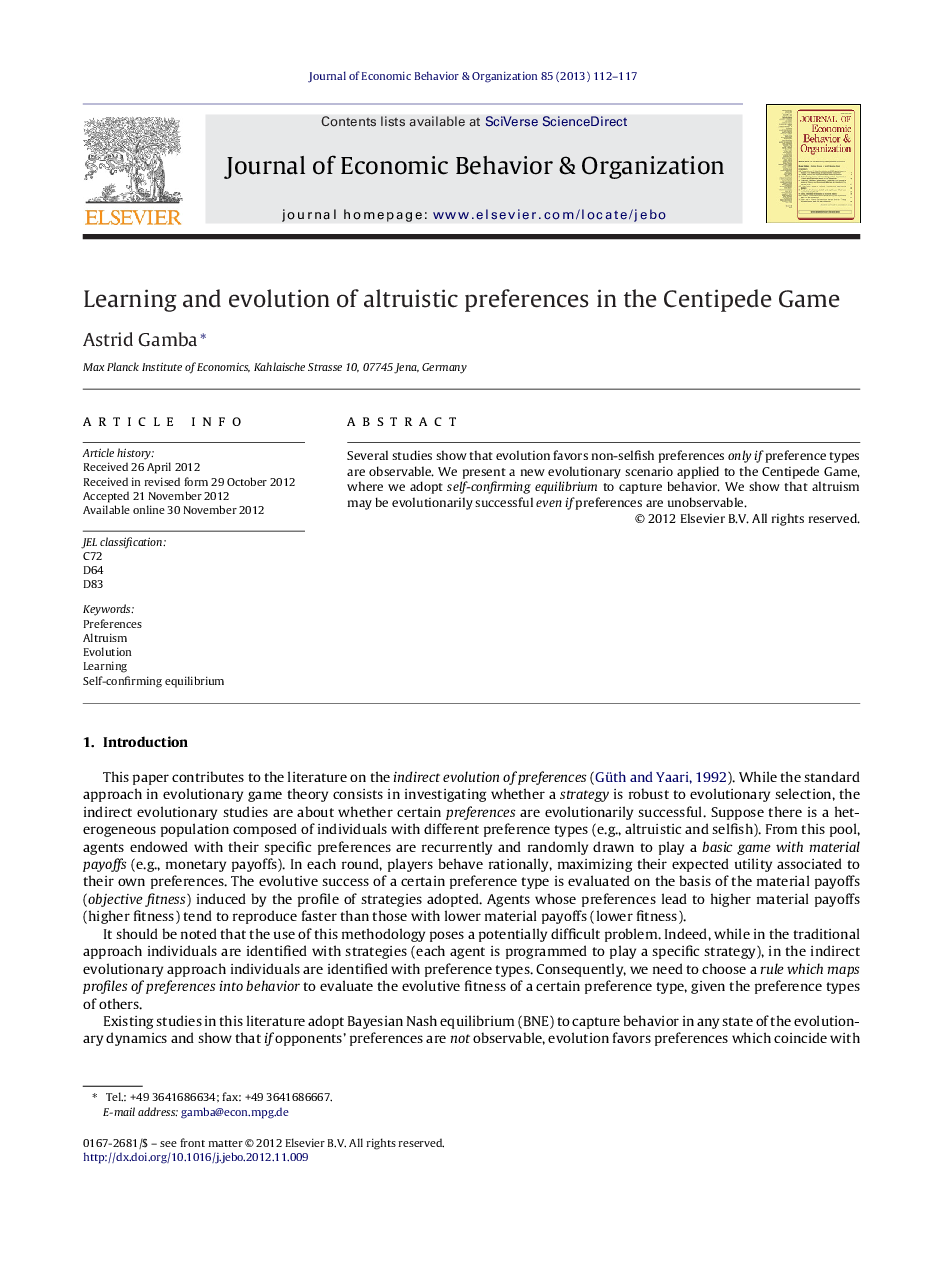| Article ID | Journal | Published Year | Pages | File Type |
|---|---|---|---|---|
| 883707 | Journal of Economic Behavior & Organization | 2013 | 6 Pages |
Abstract
Several studies show that evolution favors non-selfish preferences only if preference types are observable. We present a new evolutionary scenario applied to the Centipede Game, where we adopt self-confirming equilibrium to capture behavior. We show that altruism may be evolutionarily successful even if preferences are unobservable.
► We provide an indirect evolutionary model to justify altruistic preferences. ► In each stage of the evolutionary dynamics a Centipede Game is played. ► Preferences are unobservable and a self-confirming equilibrium is played. ► Altruism can evolve even if preferences are unobservable. ► Negative results in the literature are due to Bayesian Nash equilibrium selection.
Related Topics
Social Sciences and Humanities
Economics, Econometrics and Finance
Economics and Econometrics
Authors
Astrid Gamba,
